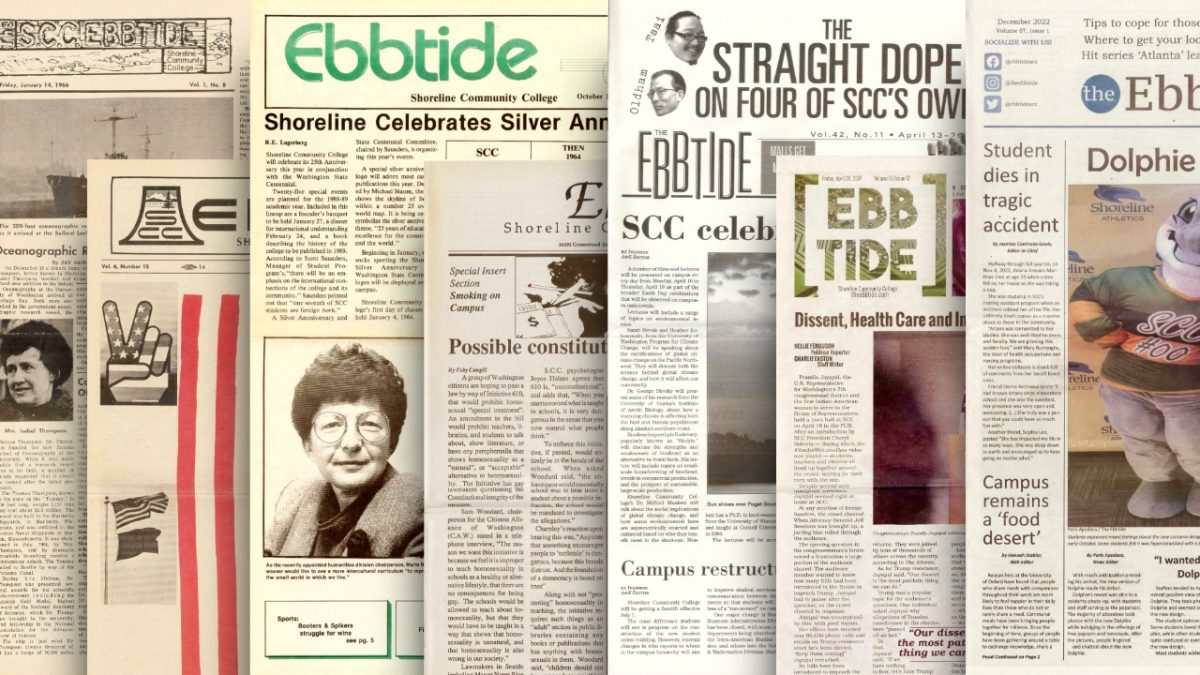Premiering in 1928, Bertolt Brecht’s “The Threepenny Opera” brought a tale of crime and corruption to theatergoers.
The German “play with music” focuses on the relationships between and how they interact with society.
Years later, it would continue to inspire pop culture, such as Bobby Darin’s jazz rendition of its song “Mack the Knife” in the 1950s.
Director and SCC acting instructor Duygu Monson explains that the play’s usage of strong language and graphic images is “the only way to truly represent what is happening.”
Cast
Trevor Bikos, who has been involved with theater at SCC for three years, plays Mr. Peachum, the show’s primary antagonist. Bikos describes Mr. Peachums as “a lot more conniving” than he had previously anticipated.
“I get to play a crazy person,” he says. “I pull scissors on someone — that’s a crazy person thing to do!”
Bikos, who says he is usually typecast as “kooky, dumb characters”, says it is “a joy” to get to do something different.
“Epic theater is nonsensical. All the rules are thrown out the window,” he says. “The lack of realism is challenging.”
Giovanna Cossalter Walters plays Mrs. Peachum.
“There’s lots of sex, drugs and singing in this play,” Walters says. “Everyone in this show thinks they’re the good guy, but they’re not.”
In an effort to remain timeless, Walters explains that references to specific times and places were removed from the script. While the music will remain original, Walters says the team is putting a “modern spin” on the show.
Hanna Roufs, who plays Lucy Groom and also acts in the Ensemble, says it is her first show at SCC. “I genuinely love all the people in this cast,” she says.
Roufs also shed light on what is perhaps a commonly felt dilemma in theater: “The hardest thing I struggle with is not laughing in the middle of my lines”
Dane Pischke plays Macheath, who Pischke sums up in three descriptions: crime boss, playboy and thief.
“I’ve got a resource for everything to get what I want, if anyone stands in my way I’ll take them down, seduce them or both,” Pischke says of the character.
Pischke, who strictly sings bass, had the tenor keys in the show’s music adjusted to suit his range.
“I love a role no matter what I get,” Pischke says. “If I get lead I get to be the center of attention, and if I’m in the ensemble I get to be lazy.”
Social Relevance
Wanda Moats gets “to be as loud as [she pleases]” as the Balladeer, who introduces various scenes.
“It’s truly a play for our current time,” Moats said, noting that the meaning of the word “justice” is an important aspect of the show.
“It’s a really stylistically and historically important play,” Director Duygu Monson said, explaining how she allows the cast and crew to bring out political commentary such as nationalism, racism, sexism, corruption and betrayal. “To view people we don’t hear in society is really crucial.”
Monson described how epic theater goes against realism by awakening, asking questions and delivering strong societal statements directly to the audience.
“I want [the audience] to feel uncomfortable from this production and to leave with lots of questions,” Monson says. “When they see something in government that isn’t fair, I want them to see that in this play and ask ‘how much am I part of the problem?’”






